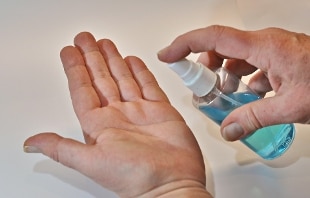Share
12 October 2020 The Covid-19 virus can survive on objects such as banknotes or mobile phones for up to 28 days: a study by the Australian National Scientific Agency reveals this.
Researchers from Commonwealth Scientific and Industrial Research (Csiro) tested the longevity of the SARS-CoV-2 virus in the dark and at three different temperatures, showing that the survival period decreases at higher temperatures.
At 20 degrees Celsius, the virus appears "extremely tough" on smooth surfaces, such as cell phone screens, and can survive for 28 days on banknotes and glass, steel and plastic.
At 30 degrees the survival period drops to seven days and plummets to just 24 hours at 40 degrees.
The presence of the virus on porous surfaces such as cotton is less persistent, up to 14 days at the lowest temperatures and less than 16 hours at the highest, a period in any case "significantly longer" than assumed by previous studies according to which the virus it could survive for up to four days on non-porous surfaces.
Trevor Drew, director of the Australian Center for Disease Preparedness, specified that the study was conducted with attenuated virus samples placed on different materials and with an "extremely sensitive" method, which found traces of the virus even after a long time. live able to infect cell cultures.
"This does not mean that that amount of the virus would be able to infect a human being," he told public broadcaster ABC, adding however that "if a person touches these materials without precautions and then touches their mouth, eyes or nose, he could contract the disease even more than two weeks after the contamination of the objects ".

